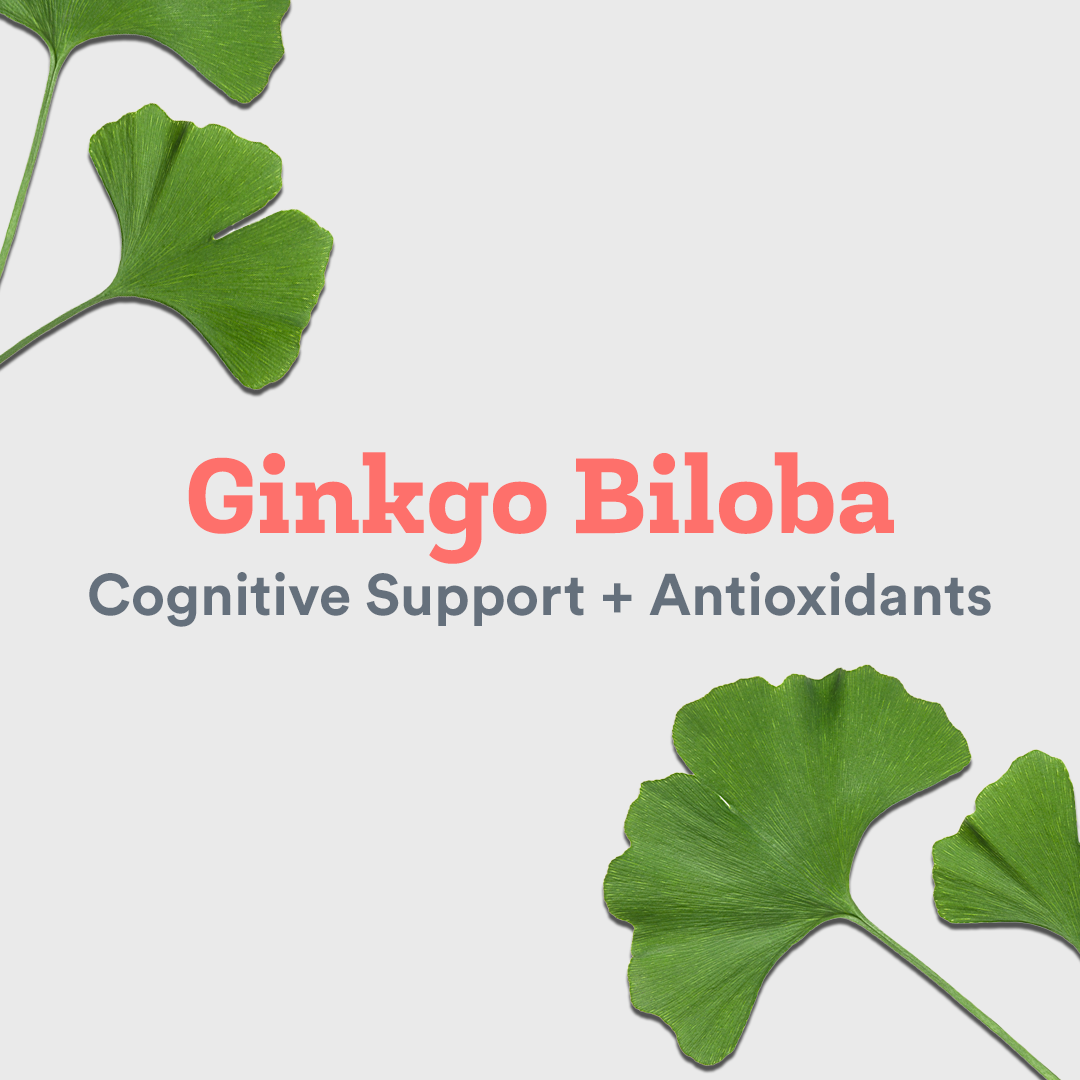
Scientific/Latin name: Ginkgo Biloba
Also known as: Maidenhair tree, Fossil tree, Bai Gou Ye, Icho
Native to: China
Parts used: Leaf and Fruit
Top benefits: Cognitive Support, Antioxidant Rich, Cardiovascular tonic

Ginkgo Biloba. Tonic for the heart and mind.
Ginkgo biloba, also known as maidenhair tree or fossil tree, has one of the most distinct, fan-shaped leaves that go from bright green to bright yellow in the fall. In fact, ‘Biloba’ comes from the shape of the Ginkgo tree leaf and translates to ‘two lobes’ in latin. The Ginkgo tree is said to have outlived the dinosaurs, having originated more than two hundred million years ago, and is now considered a “living fossil”. It’s a unique tree in that it’s the only member of its genus (Ginkgo), which is the only genus in its family (Ginkgoaceae).
Known for its effects as a cardiovascular “tonic” (a nurturing and enlivening herb), extract from the ginkgo leaf has been used in traditional Chinese medicine for thousands of years to treat circulatory problems, respiratory issues, vertigo, fatigue and tinnitus. More recently, clinical applications of Ginkgo Biloba range from improving cognitive function, cardiovascular disease to supporting peripheral circulation.

A budding area of particular interest is Ginkgo’s effect on mitochondrial health. Mitochondria are considered the powerhouse of every cell in the body, responsible for producing energy for the body and in turn play a role in how well or poorly we age. Mitochondrial vitality can decrease with age, partly due to oxidative stress over time. Early in vitro studies, in both heart muscle cells, adrenal cells and lymphocytes, show that Ginkgo Extract is able to protect mitochondria from artificially induced oxidative stress.

Health Benefits of Ginkgo Biloba
Cognitive Health
One of Ginkgo Biloba’s most popular uses is its impact on cognitive health. Despite being heavily studied for its role in Alzheimer’s and dementia in the elderly, there are benefits that extend to younger and healthier populations. Studies have shown that acute supplementation of Ginkgo has a significant effect on cognitive performance, specifically attention and memory tasks [1, 2]. While the exact mechanism by which Ginkgo improves cognitive function is unknown, it is believed that a combination of increased peripheral and cerebral blood circulation, cell metabolism (of glucose) and neuroprotective actions all play a role.
Antioxidant Rich
Chemically, Ginkgo is composed of at least 13 different bioflavonoids—a class of powerful medicinally active chemicals found in plants known as antioxidants. These bioflavonoids, found primarily in the leaves, include various ginkgolides, bilobalides and most notably quercetin. Antioxidants have been shown to help protect against various metabolic diseases, heart disease, brain disorders and age-related syndromes, as they help the body combat cellular damage caused by free radicals (reactive chemicals containing oxygen).
JOYÀ products that feature Ginkgo Biloba
The health research presented in this article is for informational use only. It is not a replacement for professional health advice and should not be construed as a recommendation of specific products. The products sold on this website are not intended to diagnose, treat, cure, or prevent any disease. This information does not provide dosage or format recommendations or possible drug interactions, and accordingly, should be used with the advice of a qualified health care practitioner.

